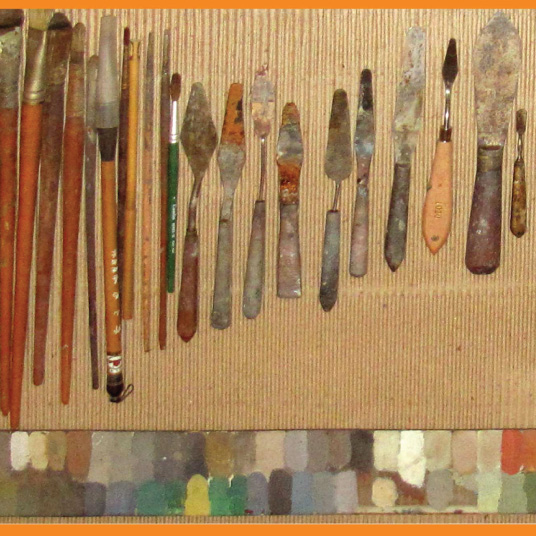
Speakers: Rashmi Poddar, Manisha Patil, Nancy Adajania, Kaiwan Mehta, Mustansir Dalvi
Convenor: Ranjit Hoskote
In India the infrastructure for the arts, especially pedagogy, has been fragile at best. With a few signal exceptions, art institutions have tended to settle into complacency, and there has been no coherent plan to develop an environment conducive to the flourishing of the arts, artists, art schools and art spaces.
'Curriculum Conclave' - a symposium organized by the CSMVS and the JNAF addressed a crucial aspect of this problem: art pedagogy. The symposium discussed an optimal curriculum for a school of arts, the education of an artist across diverse disciplines and domains, and the efforts being made by various institutions and platforms in this direction.
The symposium is related to the exhibition, "Unpacking the Studio: Celebrating the Jehangir Sabavala Bequest", and built on the ideas of the the fourth section of the exhibition ‘The School of Bombay.’ This chapter focused on Jehangir Sabavala’s student years at the J.J. School of Art, and the influences around that time. The speakers Rashmi Poddar, Mustansir Dalvi, Nancy Adajania, Kaiwan Mehta, Manisha Patil, and convenor Ranjit Hoskote - are all respected voices in the art world, who are active contributors to art pedagogy both in India and internationally.
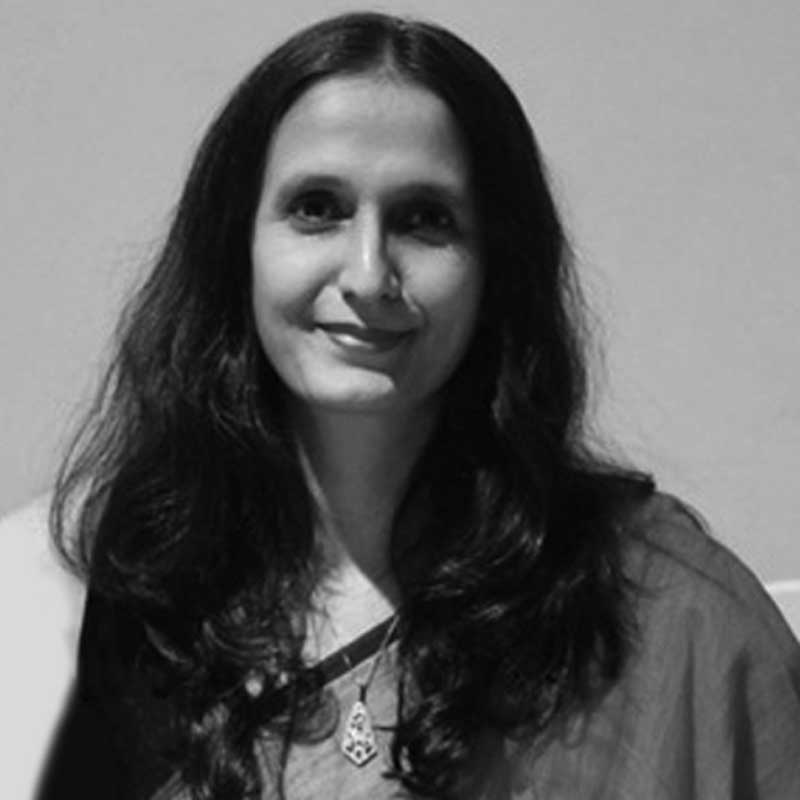
Nancy Adajania is a cultural theorist and independent curator based in Mumbai. She was joint artistic director of the 9th Gwangju Biennale, 2012, and is a contributor to the FORMER WEST research, conference and exhibition project.
Adajania has written and lectured extensively on art and the public sphere, and transcultural art practices all over the world. Her latest book, ‘The Thirteenth Place: Positionality as Critique in the Art of Navjot Altaf’, was published in 2016. She has curated a number of exhibitions, most recently ‘No Parsi is an Island’ at the National Gallery of Modern Art, New Delhi in 2016. Adajania is the editor of the monograph Shilpa Gupta in 2010 and co-author of The Dialogues Series in 2011. She was research scholar-in-residence at BAK/ basis voor actuele kunst, Utrecht, 2010 and 2013. Adajania is a member of the faculty for the Art Criticism and Theory Course at Jnanapravaha, Mumbai.
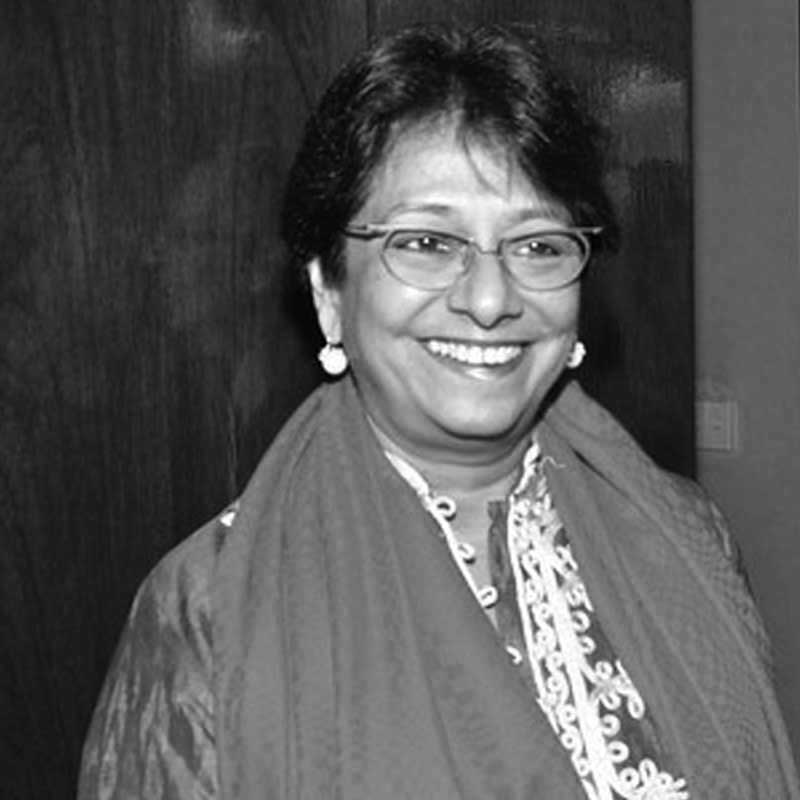
Rashmi Poddar is the Director of Jnanapravaha, an institution that provides a space for the global exchange of creative Indian thought. Her path-breaking methodology of viewing and understanding Indian classical art has opened up new theories in art history and research. It actively pursues its goal of education of the arts through seminars, workshops, lectures and other pedagogical methods. She was the former Director in Aesthetics at the Department of Philosophy, University of Mumbai and was awarded a doctorate by the University of Mumbai and the Mellon Fellowship by the Metropolitan Museum of Art, New York in 1997. She has been recently appointed the Associate Editor for Marg publications, India’s oldest art publishing house. She is a visiting lecturer at various art institutions in India and abroad. She is also the Chairperson of India Foundation For The Arts (IFA), an independent, professionally managed grant-making organization for the arts. Rashmi is also on the board of several prestigious associations across the country and is actively involved in the promotion of arts in India.
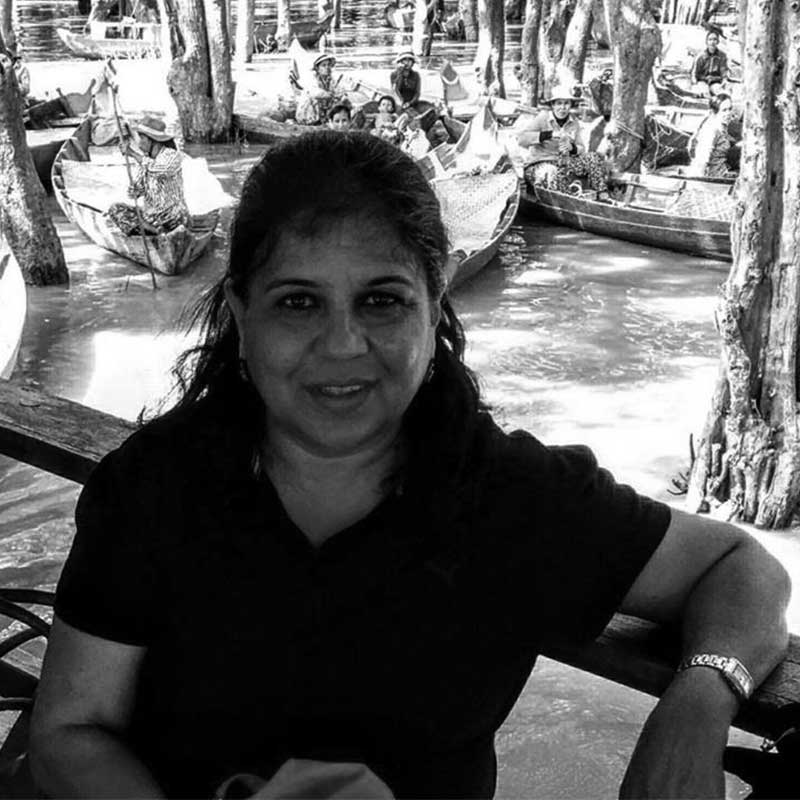
Dr. Manisha Patil is an art historian and painter. Presently Professor of Art History at Sir. J. J. School of Art, Mumbai, she has been in the field of art education since 1984, with a long stint at Sir. J .J. School of Art and Govt. Chitrakala Mahavidyalaya, Nagpur. She completed her Bachelor and Masters in Fine Arts in Painting from Govt. Chitrakala Mahavidyalaya, Nagpur followed by Ph.D. in Art History from M.S. University, Baroda.
She has contributed regularly to several art publications such as Art India, Art News and Views, Art Journal, Chinha, Sesquicentennial catalogue of J.J. School of Art and Shilpakar Charitrakosh.
Patil has initiated the conservation of the J.J. School of Art collection of paintings. She has curated an exhibition of the works of Vinayak Masoji at the Chhatrapati Shivaji Maharaj Vastu Sangrahalaya. She participates in seminars and is a guest lecturer at Mohile Parikh Center, Asia Art Archive, M.S. University, Baroda among others. She is also a practising artist who has had several major shows with artist husband Prabhakar Patil in Mumbai, New Delhi, Kolkata and Chennai.
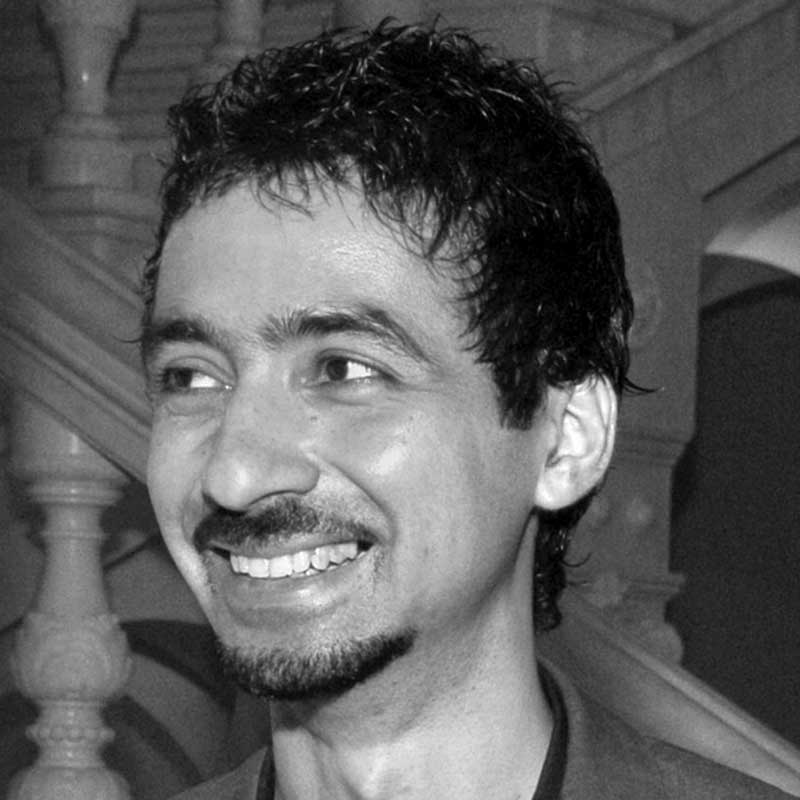
Kaiwan Mehta is a theorist and critic in the fields of visual culture, architecture and city studies. He is completing his doctorate at the Centre for the Study of Culture and Society, Bengaluru, under the aegis of Manipal University. He authored ‘Alice in Bhuleshwar: Navigating a Mumbai Neighbourhood’ in 2009. Since 2012, he has been the managing editor of Domus India and is associated with Jnanapravaha (Mumbai) since 2007 where he set up the Art, Criticism and Theory, and teaches across various undergraduate and postgraduate programmes in Mumbai.
He has been elected as the Jury Chairman for the international artists’ residency programme across 11 disciplines with Akademie Schloss Solitude in Stuggart, Germany. Mehta recently co-curated with Rahul Mehtotra and Ranjit Hoskote the national exhibition on architecture ‘The State of Architecture’ at the National Gallery of Modern Art, Mumbai in 2016. He has recently authored the book ‘The Architecture of I M Kadri’ in 2016.
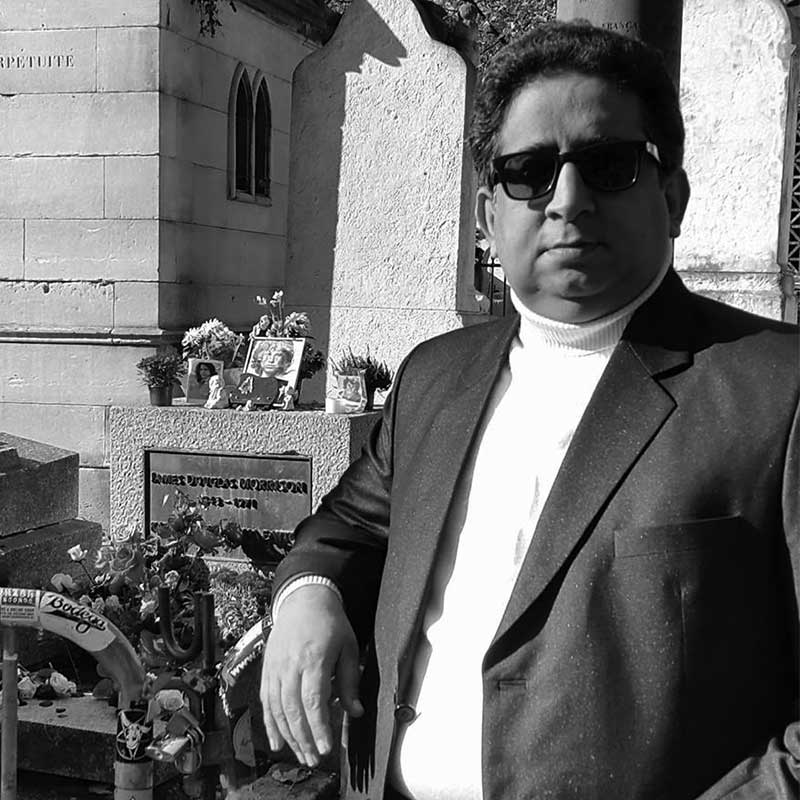
Mustansir Dalvi is Professor at the Sir JJ school of Architecture in Mumbai and Chairperson of the Board of Studies in Architecture at the University of Mumbai. He’s done extensive research on architecture and urban issues that has been published in several journals. He is also the author of ‘The Romance of Red Stone: An Appreciation of Ornament on Islamic Architecture in India”. Mustansir is also an accomplished poet and his work has appeared in several collections and anthologies. His first book of poems Brouhahas of Cocks was published in 2013. He has also done a very elegant translation of two important and controversial poems of Mohammed Iqbal – Shikwa (Taking Issue) and Jawaab-e-Shikwa (Allah’s Answer). His translation make these poems – dating back to the early 1900’s , come alive in a language that is contemporary and accessible to people.
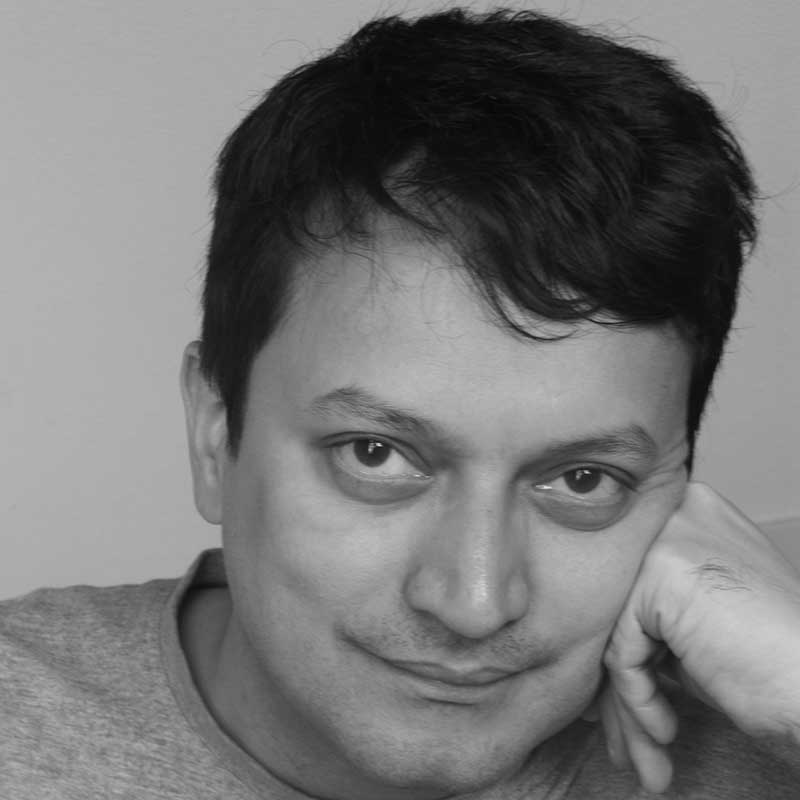
Ranjit Hoskote is a cultural theorist, curator and poet based in Mumbai. He is the author of 30 books, including a biography of Jehangir Sabavala, Pilgrim, Exile, Sorcerer (Eminence Designs, 1998), and numerous monographs, among them The Complicit Observer: The Art of Sudhir Patwardhan (Eminence Designs, 2004), Zinny & Maidagan: Compartment/ Das Abteil (Museum für Moderne Kunst, Frankfurt/ Walther König, 2010), and Atul Dodiya (Prestel, 2014). With Nancy Adajania, he is co-author of The Dialogues Series (Popular, 2011), an unfolding programme of conversations with artists. With Maria Hlavajova, he is editor of Future Publics: A Critical Reader in Contemporary Art (BAK/Valiz, 2015).
Hoskote curated India’s first-ever national pavilion at the Venice Biennale (2011), co-curated the 7th Gwangju Biennale (2008), and was co-convenor of Documents, Constellations, Prospects (Haus der Kulturen der Welt, Berlin, 2013). His exhibitions include Bombay: Labyrinth/ Laboratory (Japan Foundation, Tokyo, 2001), a mid-career retrospective of Atul Dodiya; Jehangir Sabavala, a lifetime retrospective (NGMA Mumbai & Delhi, 2005-2006); Unpacking the Studio: Celebrating the Jehangir Sabavala Bequest (CSMVS/ JNAF, 2015), and No Parsi is an Island (with Nancy Adajania; NGMA Mumbai, 2013 & NGMA Delhi, 2016).